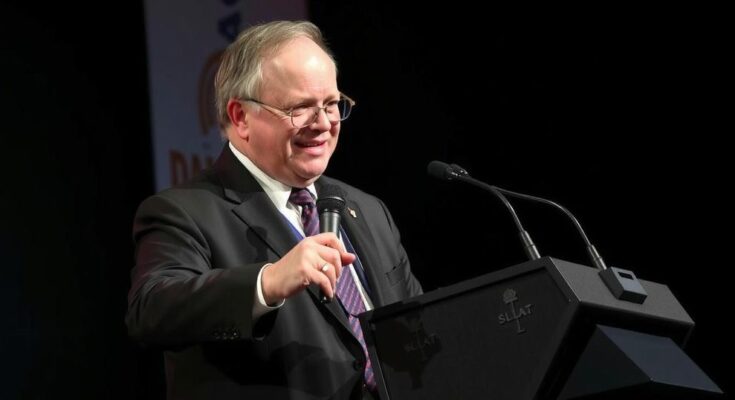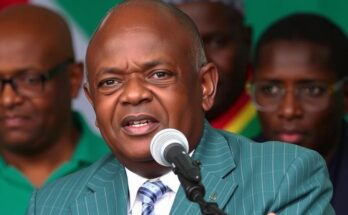Tim Walz returned to Minnesota after his defeat on the national stage with Kamala Harris. Acknowledged by Harris in her concession speech, he faces a changing political climate as his party’s influence wanes in the state. His campaign featured notable successes alongside missteps, and now, with two years left in his gubernatorial term, Walz must navigate an increasingly competitive political environment.
Tim Walz’s brief tenure in national politics concluded without fanfare as he returned to Minnesota following the Democratic ticket’s election defeat. Despite a poignant concession speech from Vice President Kamala Harris acknowledging his contributions, Walz now faces the reality of governing in a shifting political landscape. His term as governor remains intact for two more years, but the results of the recent election may weaken his party’s hold over the state. During his short stint on the campaign trail, he achieved both noted successes and significant missteps, drawing attention for his unique performance while struggling with some public gaffes. His lack of regional recognition compared to more prominent candidates limited his impact, even as he managed to cultivate a personal connection with some voters describing him as the everyman. Initially buoyed by his selection as Harris’s running mate, which was seen as an unexpected yet strategic move, Walz aimed to solidify support among blue-collar and moderate voters. His efforts to represent progressive values frequently collided with the necessity to engage a diverse electorate in purple states, ultimately revealing the limitations of his campaign approach. The election’s aftermath underscores a challenging journey ahead, as Walz contemplates his future in a role that may soon require negotiation across partisan divides in a state moving increasingly towards Republican views.
The article discusses Tim Walz’s return to Minnesota after his unsuccessful bid on the Democratic presidential ticket alongside Kamala Harris. Governor Walz, once a prominent figure in state politics and a vice presidential nominee, now grapples with the realities of local governance amid an electoral climate that is tilting slightly towards Republican influence. His campaign experience touched on significant themes such as progressive politics, regional identity, and the challenges of appealing to moderate voters. The election results, notably the voting patterns in important states, signal a tightening political landscape that Walz must navigate in his remaining gubernatorial term.
In summation, Tim Walz’s return to Minnesota marks a pivotal moment as he reassesses his role following a national election loss. With a weakened Democratic presence potentially on the horizon, Walz faces the challenge of unifying a divided state amid evolving voter sentiments. His past efforts on the campaign trail showcased both his potential and limitations, setting the stage for the next two years of his governance, where collaboration and adaptability will be essential to safeguard the Democratic agenda in Minnesota.
Original Source: www.usatoday.com




